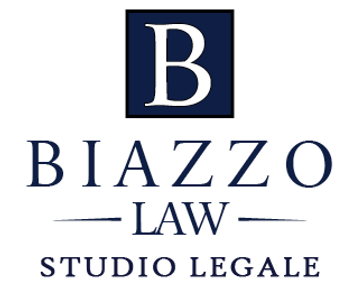Understanding the Difference Between a Will and a Trust — and Why You Need Biazzo Law for Your Estate Plan
- corey7565
- Oct 20, 2025
- 4 min read

Secure Your Legacy with Confidence
Creating an estate plan is one of the most important steps you can take to protect your family, your assets, and your legacy. Yet many people don’t understand the difference between a will and a trust, or how each plays a role in a comprehensive estate plan.
At Biazzo Law, we help clients in Florida, North Carolina, South Carolina, Illinois, Colorado, Arizona, Washington, Indiana, Iowa, Missouri, and Oregon make informed decisions about their futures. With our experience in both estate planning and litigation, we ensure that your documents are clear, enforceable, and tailored to your specific goals.
What Is a Will?
A will is a legal document that outlines how you want your property, money, and personal items distributed after your death. It also allows you to:
Name beneficiaries who will inherit your assets
Appoint a personal representative or executor to handle your estate
Designate guardians for minor children
Express wishes for funeral and final arrangements
However, a will must go through probate, a court-supervised process that validates the document and oversees asset distribution. Probate can be time-consuming, costly, and public — meaning your estate information becomes part of the public record.
What Is a Trust?
A trust is a separate legal entity that holds assets for the benefit of your chosen beneficiaries. Trusts come in many forms (revocable living trusts, irrevocable trusts, special needs trusts, etc.), but they share one important advantage:
They allow your assets to be transferred outside of probate.
Key benefits of a trust include:
Avoiding probate — saving time, costs, and keeping matters private
Maintaining control over how and when assets are distributed
Protecting beneficiaries from creditors or mismanagement
Planning for incapacity, allowing seamless management of assets if you become unable to handle your own affairs
At Biazzo Law, we often use a trust-based estate plan for clients who own property in multiple states — such as Florida condos, Carolina vacation homes, or Colorado investment properties — because it simplifies asset transfers and avoids multiple probate proceedings.
Wills vs. Trusts: A Quick Comparison
Feature | Will | Trust |
Effective when | After death | Immediately upon creation |
Probate required | Yes | No (if properly funded) |
Privacy | Public record | Private |
Cost & complexity | Lower initial cost | Higher setup cost but easier long-term administration |
Asset control after death | Limited | Full control through distribution instructions |
Incapacity planning | No | Yes — trustee can manage assets during your lifetime |
Why You Need Both a Will and a Trust
While a trust can handle most of your estate, a “pour-over will” is still essential. It acts as a safety net, transferring any remaining assets into your trust and naming guardians for your minor children. A complete estate plan should also include:
Durable power of attorney
Health care proxy or advance directive
Living will
HIPAA authorization
Biazzo Law helps you create all of these in a single, comprehensive estate plan tailored to your goals and family dynamics.
Why Choose Biazzo Law for Your Estate Planning Needs
At Biazzo Law, we bring the perfect balance of transactional experience and litigation insight — ensuring that your estate plan not only looks good on paper but stands up if ever challenged.
Our Approach:
Personalized Planning: Every family is different. We take time to understand your assets, relationships, and long-term goals.
Multi-State Insight: Our firm assists clients across Florida, North Carolina, South Carolina, Illinois, Colorado, Arizona, Washington, Indiana, Iowa, Missouri, and Oregon — providing seamless coordination for those with property or family in multiple states.
Asset Protection & Tax Efficiency: We work closely with our network of CPAs and financial advisors to ensure your estate plan minimizes taxes and preserves wealth for your loved ones.
Litigation Experience: Because our attorneys have handled estate disputes, we know how to draft plans that prevent confusion and conflict later.
With Biazzo Law, you get the personal attention of a boutique firm combined with the strategic sophistication of national experience.
Common Questions About Wills, Trusts & Estate Planning
Do I need a lawyer to make a will or trust?
Yes. DIY templates often fail to comply with state laws or coordinate assets properly. An experienced estate planning attorney ensures your documents are valid, enforceable, and customized for your situation.
If I have a trust, do I still need a will?
Yes — a “pour-over will” complements your trust and ensures any assets not previously transferred are distributed according to your wishes.
How often should I update my estate plan?
You should review your plan every 3–5 years or whenever there’s a major life change: marriage, divorce, birth of a child, death of a beneficiary, relocation, or significant asset purchase.
Can Biazzo Law help me if I own property in multiple states?
Absolutely. We assist clients with multi-state estate planning to avoid duplicate probate and ensure a unified legal strategy across Florida, North Carolina, South Carolina, Illinois, Colorado, Arizona, Washington, Indiana, Iowa, Missouri, and Oregon.
What happens if I die without a will or trust?
Your assets will be distributed under your state’s intestacy laws, which may not reflect your wishes. A proper estate plan ensures you, not the court, decide what happens to your legacy.
Secure Your Future with Biazzo Law
No matter where you live — from Miami to Charlotte, Chicago to Phoenix, or Seattle to Denver — the attorneys at Biazzo Law are ready to help you create a clear, effective, and enforceable estate plan.
📞 Contact Biazzo Law today or visit BiazzoLaw.com to schedule your confidential estate planning consultation.
Biazzo Law — Strategic Estate Planning. Multi-State Experience. Personalized Protection.



Comments